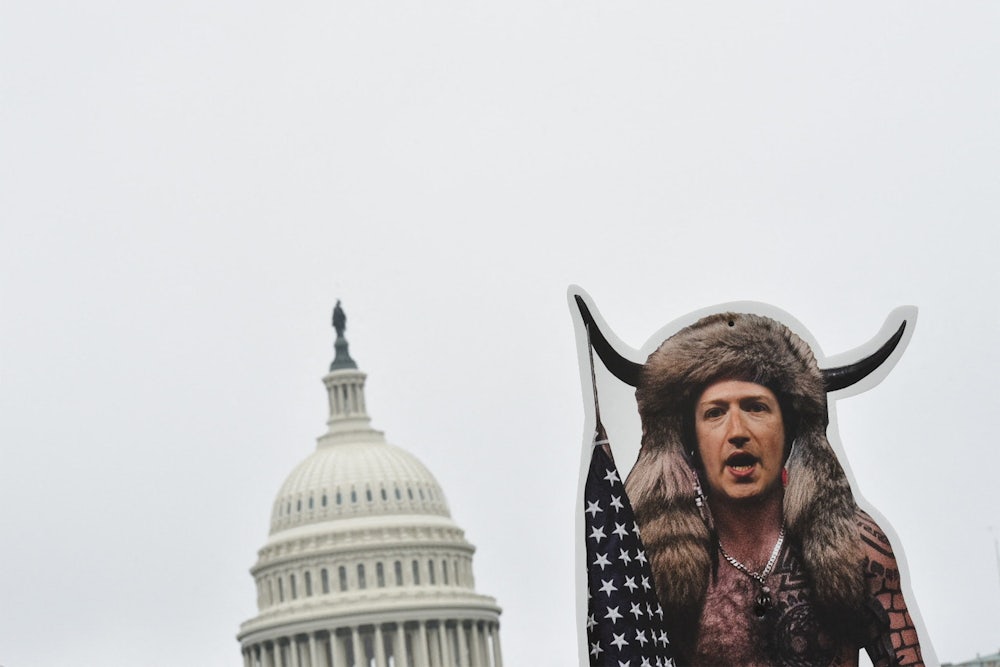When Frances Haugen, the Facebook employee turned whistleblower testifies before the Senate subcommittee charged with addressing consumer safety and consumer protection, it will be a dramatic moment in the ongoing battle between Facebook and lawmakers in Washington vying to better regulate the social media giant.
It also comes as Facebook finds itself under a level of scrutiny all tech giants dread. Haugen, over the weekend, came forward in a high-profile and scorching 60 Minutes interview as the former Facebook employee who leaked internal documents to The Wall Street Journal that revealed the company’s sole focus on profit while it disregarded evidence of harm to users.
The documents have evolved into an ongoing reported series by the Journal covering the darker underbelly of the social media platform. Haugen on Tuesday plans to testify that the company is in desperate need of serious regulation and that the public should get far greater transparency concerning its policies and priorities.
“The severity of this crisis demands that we break out previous regulatory frames,” Haugen will say, according to a copy of her prepared testimony reported by Reuters. “Tweaks to outdated privacy protections or changes to section 230 will not be sufficient. The core of the issue is that no one can understand Facebook’s destructive choices better than Facebook, because only Facebook gets to look under the hood. A critical starting point for effective regulation is transparency: full access to data for research not directed by Facebook. On this foundation, we can build sensible rules and standards to address consumer harms, illegal content, data protection, anticompetitive practices, algorithmic systems and more.”
Her testimony follows multiple appearances on major television shows and extensive coverage in the national press. In those reports, Haugen detailed the blatant disregard Facebook showed concerning hate speech, misinformation, and violence.
“Right now, Facebook chooses what information billions of people see, shaping their perception of reality,” Haugen will also say, according to the remarks. “Even those who don’t use Facebook are impacted by the radicalization of people who do. A company with control over our deepest thoughts, feelings, and behaviors needs real oversight.”
Calls for oversight of Facebook are not new, and in fact various congressional panels have been scrutinizing the company for months now. But this week will move that attention into a new, more public phase. Lawmakers are planning to use the testimony and Haugen’s previous appearances to further make the case (which has been conventional wisdom for a while now) that Facebook is too big and destructive, at this point, to be allowed to stay as it is.
“I would say, first of all, this is not actually anything new,” Representative David Cicilline, who chairs the House Judiciary subcommittee on antitrust, said in an interview on Monday. “I think it confirms what we have known for some time, and that is that Facebook and other social media platforms, but in this case particularly Facebook, has a business model that, first of all, allows the massive extraction of human generated data.… The big problem is we have an economic model that makes it perfectly legal for these platforms to basically collect and extract all of this personal data from people as a result of activities that they engage in.”
But even Cicilline is realistic about the level of resistance oversight proponents will continue to face. He said he and his allies—notably including Senator Richard Blumenthal and Congresswoman Jan Schakowsky—are “battling the biggest economic powers that we have in this country.”
“It’s probably the most extraordinary amount of resistance I’ve ever seen since I got into Congress. Look, they have unlimited resources to spend to prevent any reforms and to maintain the current ecosystem that they have,” the Rhode Island Democrat continued. “They have billions and billions and billions of reasons to keep in place this ecosystem that has generated profits never seen in the history of the world. They have engaged an army of lobbyists and are spending millions and millions and millions of dollars, both in campaigns and in lobbying, to try to protect the status quo because it’s so profitable.”
The degree to which major technology companies—Facebook, Amazon, Apple, and Google—are rooted in the American economy and everyday life is peerless. A report from Cicilline’s subcommittee released late last year said those companies “play an important role in our economy and society as the underlying infrastructure for the exchange of communications, information, and goods and services.”*
That further underscores the need for more regulation, that report argued. “Facebook’s monopoly power is firmly entrenched and unlikely to be eroded by competitive pressure from new entrants or existing firms,” the report continued.
Facebook has also had to push back on reporting in the Journal series about its role in the January 6 mob attack on the Capitol.
The next moves by proponents of regulating or creating more oversight for Facebook are still coming, as are the players involved. In response to a question about Haugen on Monday, White House press secretary Jen Psaki said the Biden administration “pledged to work with Congress to strengthen whistleblower laws and make sure that federal employees know how to report improper conduct and receive full protection against retaliation.”
Later this week, Jonathan Kanter, Biden’s nominee to be assistant attorney general in charge of the antitrust division, will get his nomination hearing. Antitrust experts expect Kanter to be an effective leader of the Justice Department’s division and take a deft approach to dealing with Facebook. Cicilline name-checked Lina Khan, who runs the Federal Trade Commission, and Tim Wu, a member of Biden’s National Economic Council, as some of the “best champions of reform in the Big Tech space.”
A spokesperson for the Justice Department did not respond to an inquiry on its possible options for further regulating Facebook.
The congressman and others argue that there needs to be a full-court press for Facebook, and even then, those efforts may not be successful. Ultimately, though, Cicilline said, “Much of this work has to be done legislatively, both in modernizing our antitrust statutes and in prohibiting certain kinds of conduct. So I think we all have to keep our foot on the gas because this is a very serious threat to our economy but also a serious threat to our democracy.”
What needs to happen, Cicilline said, is to “reestablish competition in the digital marketplace.” He stressed that’s “critical.”
“But we also need to look at the way content is curated by these platforms and figure out ways, through regulation and by statute, to prevent them from using a business model that incentivizes the sharing of this kind of dangerous information,” Cicilline said. “And at the far extreme is to make them liable for doing that.”
In a somewhat ironic twist of fate on Monday, Facebook, along with Instagram and WhatsApp, experienced outages that kept them down for most of the day. “DeleteFacebook” trended on Instagram. It was yet another sign that the public sentiment on Facebook has shifted from passivity to quiet disdain to vocal outrage about reform. The question now, though, is what kind of resistance those calls for reform will be met with. Lawmakers looking to put into place better safeguards to prevent Facebook from causing harm to users or democracy itself are under no illusion that this will be easy.
* A previous version of this article misstated the release date of the subcommittee’s report.


